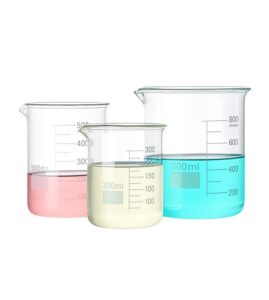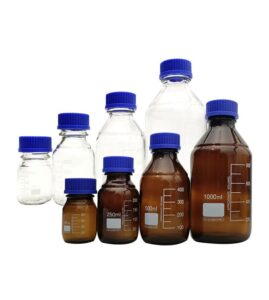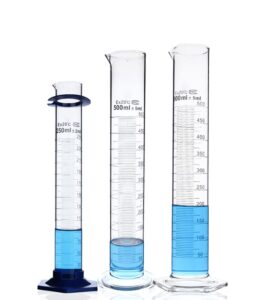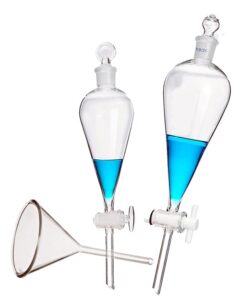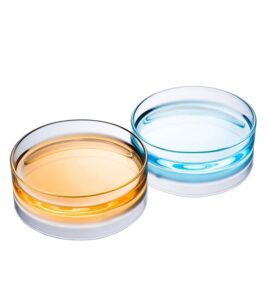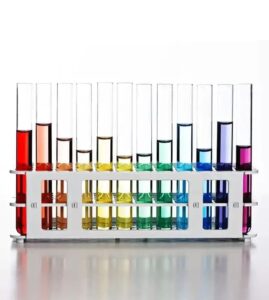Have you ever experienced unexpected results in your lab experiments? Wondering how to ensure accurate and consistent results? The quality of your laboratory glassware might be the key.
To ensure top-quality laboratory glassware for your business, you need to select the right type of glassware, purchase from reputable manufacturers, and establish proper cleaning, storage, and maintenance procedures. By following these guidelines, you’ll be able to maintain high-quality glassware and ultimately achieve more accurate and reliable results.
Why is Top-Quality Laboratory Glassware Important for Your Business?
The quality of your laboratory glassware can have a significant impact on the accuracy and consistency of your research or product development. High-quality glassware ensures that your measurements are precise and your experiments are free from contaminants. This is crucial for meeting industry standards, ensuring regulatory compliance, and maintaining your business’s reputation.
What is the Role of Laboratory Glassware in Ensuring Data Integrity?
Data integrity is crucial for obtaining reliable and accurate results in your laboratory. High-quality laboratory glassware plays a significant role in maintaining data integrity through the following ways:
- Precise Measurements: Top-quality glassware, such as volumetric flasks and graduated cylinders, ensures accurate measurements that contribute to the reliability of your data.
- Consistent Results: High-quality glassware is manufactured to strict quality control standards, ensuring consistent performance and reproducible results across multiple experiments.
- Contamination Prevention: Properly cleaned and maintained glassware helps prevent contamination, which is essential for maintaining data integrity in sensitive laboratory processes.
- Compliance with Regulatory Standards: By using glassware that meets industry standards and certifications, you demonstrate your commitment to maintaining data integrity and complying with regulatory requirements.
How Can You Identify High-Quality Glassware?
There are several factors to consider when determining the quality of laboratory glassware:
- Material: Laboratory glassware is typically made from borosilicate or soda-lime glass. Borosilicate glass is more resistant to thermal shock and chemical corrosion, making it the preferred choice for most laboratory applications.
- Accuracy: The accuracy of glassware, such as volumetric flasks and graduated cylinders, is vital for precise measurements. Look for glassware with certified accuracy and calibration markings.
- Glassware Thickness: Thicker glassware is generally more durable and less likely to break, crack, or chip.
- Manufacturing Quality: Reputable manufacturers follow strict quality control standards to ensure consistent glassware performance
How Can You Source Top-Quality Glassware?
To source top-quality laboratory glassware for your business, follow these steps:
- Identify Your Glassware Needs: Determine the types of glassware required for your specific applications, such as beakers, flasks, or pipettes. This will help you narrow down your search.
- Research Reputable Manufacturers: Search for well-established manufacturers with a proven track record of producing high-quality glassware. Look for certifications such as ISO 9001 and ASTM to ensure quality and compliance with industry standards.
- Compare Prices and Quality: Don’t just settle for the cheapest option. Compare the quality and features of different products to make an informed decision.
How Can You Choose Environmentally Friendly Laboratory Glassware?
With increasing awareness of environmental concerns, many businesses are looking for ways to adopt sustainable practices in their laboratories. Here’s how you can choose environmentally friendly laboratory glassware:
- Reusable Glassware: Opt for reusable glassware whenever possible, as it reduces waste and saves resources. Make sure the glassware is durable and can withstand multiple uses without compromising its performance.
- Recyclable Glassware: If disposable glassware is necessary, choose recyclable options made from materials like borosilicate glass. This will help minimize the environmental impact of your laboratory operations.
- Energy-Efficient Glassware: Look for glassware designed to conserve energy, such as those with low thermal conductivity or heat-resistant coatings. These features can help reduce energy consumption in your lab.
- Manufacturer Sustainability Practices: Research the sustainability practices of glassware manufacturers, and choose those that prioritize environmentally friendly manufacturing processes and materials.
How Can You Ensure Proper Calibration of Laboratory Glassware?
Calibration is crucial for maintaining the accuracy of your glassware measurements. Follow these guidelines to ensure proper calibration:
- Understand Calibration Requirements: Different types of glassware have different calibration requirements. Familiarize yourself with the calibration procedures for each type of glassware in your lab.
- Conduct Regular Calibration Checks: Develop a schedule for regular calibration checks and stick to it. This will help identify any inaccuracies or inconsistencies in your glassware measurements.
- Use Certified Calibration Standards: When calibrating glassware, use certified calibration standards1 to ensure the highest level of accuracy.
- Record Calibration Results: Keep a detailed record of calibration results, including dates, procedures, and any corrective actions taken. This will help maintain a history of your glassware’s performance and ensure traceability.
How Can You Train Your Staff to Handle Laboratory Glassware Properly?
Proper handling of laboratory glassware is essential for maintaining its quality and ensuring accurate results. Implement these training tips to ensure your staff handles glassware correctly:
- Develop Standard Operating Procedures (SOPs): Establish clear guidelines for the use, cleaning, storage, and maintenance of laboratory glassware. Make sure your SOPs are accessible and easy to understand.
- Provide Regular Training: Offer regular training sessions to educate your staff on the importance of proper glassware handling and the consequences of improper handling.
- Monitor Performance: Supervise your staff to ensure they are following established SOPs and handling glassware correctly. Provide feedback and address any concerns or issues that arise.
- Promote a Safety Culture: Encourage a safety-first mindset within your team by emphasizing the importance of proper glassware handling in maintaining a safe working environment.
What are the Best Practices for Cleaning and Maintaining Laboratory Glassware?
Proper cleaning, storage, and maintenance are essential for maintaining the quality and longevity of your glassware. Follow these best practices to keep your glassware in optimal condition:
- Cleaning: Always clean glassware immediately after use to prevent residues from hardening. Use appropriate cleaning agents, such as detergents or solvents, and rinse thoroughly with distilled water. For stubborn residues, ultrasonic cleaning[^4^] can be an effective method.
- Drying: Dry glassware using a lint-free cloth or air dry in a dust-free environment. Avoid rapid temperature changes to prevent thermal shock.
- Storage: Store glassware in a clean, dry, and organized manner to prevent breakage and contamination.
Inspection: Regularly inspect your glassware for signs of damage, such as cracks or chips. Replace damaged glassware immediately to avoid inaccurate measurements or contamination.
How Can You Optimize Your Laboratory Glassware Inventory?
Managing your laboratory glassware inventory is crucial for maintaining efficiency and minimizing costs. Follow these tips to optimize your glassware inventory:
- Conduct Regular Inventory Audits: Regularly review your glassware inventory to identify any discrepancies, shortages, or excess stock. This will help ensure you have the right amount of glassware on hand to meet your laboratory’s needs.
- Establish a Reordering System: Develop a system for reordering glassware, including setting reorder points and identifying preferred suppliers. This will help ensure a consistent supply of glassware and minimize the risk of stockouts.
- Implement a Glassware Tracking System: Use a glassware tracking system, such as barcodes or RFID tags, to monitor the location and usage of your glassware. This can help prevent loss or theft and improve overall lab efficiency.
- Evaluate Glassware Utilization: Regularly assess how frequently each type of glassware is used and adjust your inventory levels accordingly. This will help you avoid overstocking and reduce storage costs.
consideration of various factors, including the selection of glassware, purchasing from reputable manufacturers, and establishing proper cleaning, storage, and maintenance procedures. By prioritizing environmentally friendly options, ensuring data integrity, and optimizing your glassware inventory, you can enhance the overall efficiency and sustainability of your laboratory operations while maintaining the highest standards of quality and accuracy.


